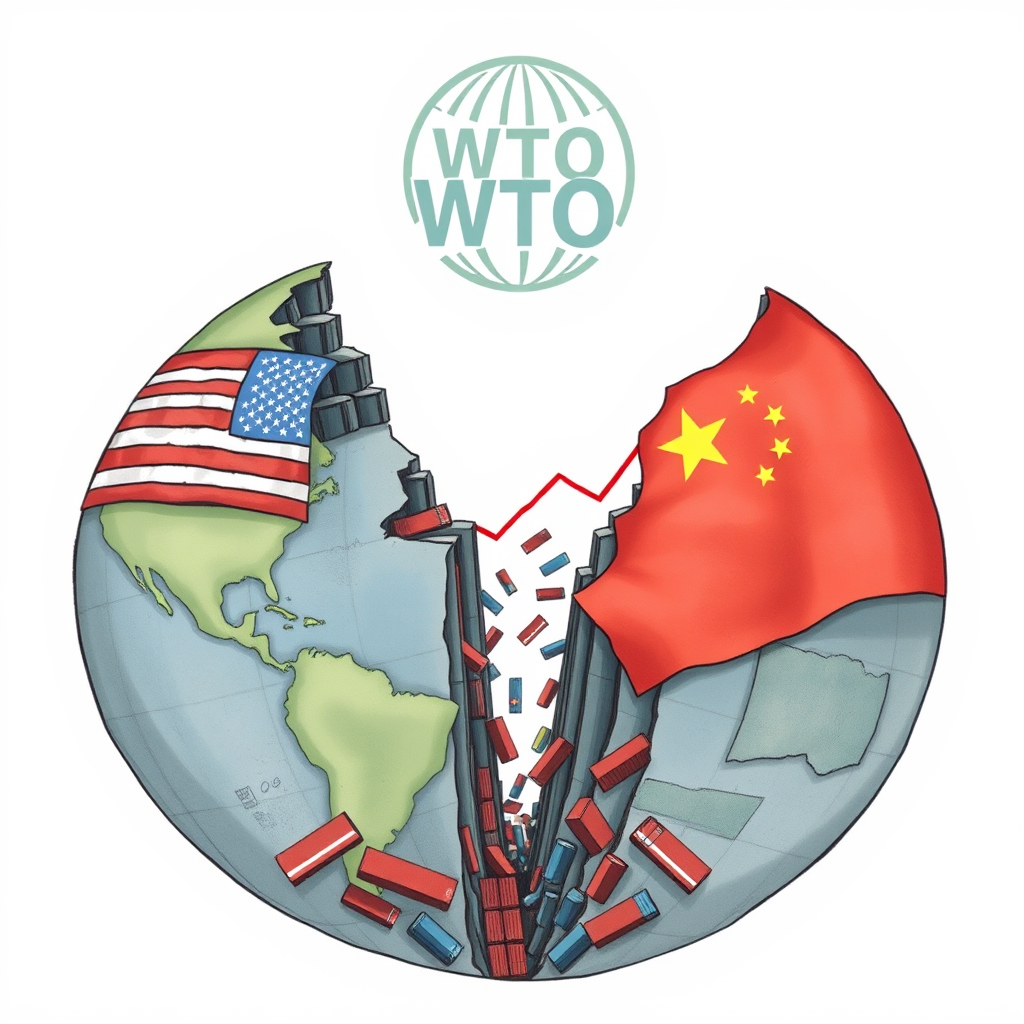US-China Trade War: 80% Collapse Looms

The World Trade Organization warns escalating tariffs between the United States and China could decimate bilateral trade, potentially shrinking it by as much as 80 percent and dragging down the global economy. WTO Director-General Ngozi Okonjo-Iweala issued the stark warning Wednesday as President Donald Trump further intensified the trade war, raising tariffs on Chinese goods to 125 percent amidst a cycle of retaliatory measures.
Okonjo-Iweala’s statement highlighted the significant risk of a “sharp contraction” in trade between the world’s two largest economies. Her projections indicate a potential 80 percent decrease in merchandise trade, a figure that underscores the severity of the escalating conflict. She cautioned that this dispute isn’t merely a bilateral issue, but poses a “severe damage” to the overall global economic outlook.
The tariff escalation comes despite a temporary pause on additional tariffs impacting the rest of the world, a move Trump announced after receiving requests for negotiation from dozens of countries. However, this reprieve appears limited given the aggressive actions taken against China.
A particularly concerning aspect, according to Okonjo-Iweala, is the potential for global trade to fragment into two distinct blocs – one centered around the United States and the other around China. Such a division, she warned, could result in a nearly seven percent reduction in global real GDP. She implored all WTO members to prioritize cooperation and dialogue to address the crisis.
The latest round of tariff hikes began earlier Wednesday with Trump initially increasing duties on Chinese goods to 104 percent. China swiftly responded with retaliatory tariffs on US imports, prompting Trump to further raise duties to 125 percent.
In a social media post, Trump justified the actions by citing what he perceives as a lack of respect from China towards global markets. The escalating tensions have already impacted US stock markets, which experienced a roughly 10 percent slump over the past week before surging briefly following Trump’s announcement of the temporary tariff pause.
This situation is deeply troubling. While addressing legitimate concerns about trade imbalances and unfair practices is crucial, resorting to such aggressive and sweeping tariffs risks inflicting significant harm on businesses, consumers, and the global economy as a whole. The WTO’s warning should serve as a wake-up call. A negotiated solution, based on established trade rules and principles, is urgently needed to de-escalate the conflict and prevent a potentially catastrophic outcome. The current trajectory is unsustainable and threatens to unravel decades of progress in global trade liberalization.